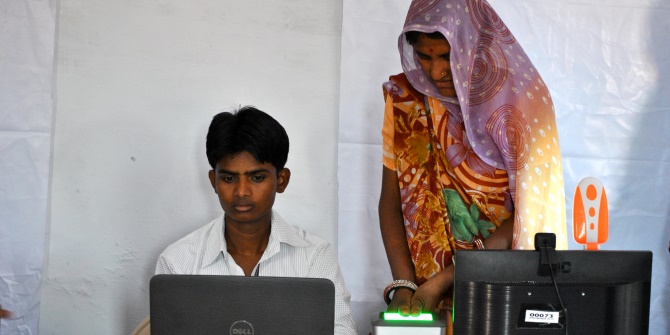LSE Enterprise recently ran an executive education programme specifically designed for the Indian Audit and Accounts Service. Julius Sen describes how such programmes give Indian officials a truly international perspective on their work.
The audit function in India, at both the state and national levels, has assumed a particularly vital function in recent years. It contributes to informed policy debates on getting the best value for money, it informs governments when deciding on accounting and book keeping methods and, above all, it plays a vital role in exposing corruption and malpractice.
The office of the Comptroller and Auditor General enjoys autonomous constitutional status, giving the audit process a central role in the governance of the country. Officers of the Indian Audit and Accounts Service are an integral part of this structure and are now expected to contribute to improvements in governance—something that has risen to the top of the political agenda and which is a central topic of debate in the media and amongst the public at large. Indeed, recent scandals in the organisation of the Commonwealth Games and in the auction of telecoms licenses, in particular, have precipitated an anti-corruption movement that is unparalleled in India’s independent history. Hence the importance of raising standards of governance across the system.
Seeking exposure on recent economic developments, a group of officials with the Indian Audit and Accounts Service recently completed a short LSE Enterprise course, which covered topics such as civil service reform and the role of emerging economies like India as well as technical areas such as derivatives. LSE Visiting Professor and Honorary Fellow Sir John Bourn, who taught part of the programme, has strong professional links with colleagues in the Indian Audit Service owing to his previous position as the Comptroller and Auditor General of theUK. He recalls exchanging ideas and expertise with his Indian counterparts on the Board of Audit of the United Nations, which is responsible for the external audit of UN activities.
According to Sir John, the Indian Audit Service is well developed and fully abreast of current public sector audit practice, combining rigorous financial audit with value-for-money audits. These show governments, parliaments and citizens at large how public services can be more economic and efficient in serving the Indian public. Owing to the professionalism of the Indian Audit Service, Sir John believes the programme’s greatest offering was the opportunity for colleagues from India to update their understanding of current developments in the UK.
Understanding the global context in which governments around the world attempt – with mixed results – to harness the dynamism of markets to the development requirements of the state, will also contribute directly to the expertise, competence and capacity of audit officers, and should help them provide higher standards of analysis and advice to the government and the public sector. International exposure also familiarises participants with best practice examples that can be useful in any evaluation of strategies or approaches that are being contemplated by the government. The current debates in the UK over the cost-effectiveness of Public-Private Partnerships (PPPs) or the Private Finance Initiative are some examples, and there will be many others.
The British Government announced further changes while the course was being held in such areas as civil service structure and management. The programme participants were therefore able to learn about the latest experience in PPPs and linkages with private sector practice that the current coalition government has at the centre of its arrangements for policy implementation. The Indian participants’ probes into the constitutional significance of these changes and their practical implications will help foster better understanding between the British and Indian governments.
Having audit officers from India participate in the campus life of LSE also enriches the School in many ways, and provides academics and policy practitioners in the UK with insights into developments within India which they could otherwise overlook.
Julius Sen is an Academic Director at LSE Enterprise.








